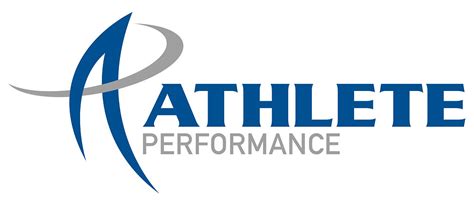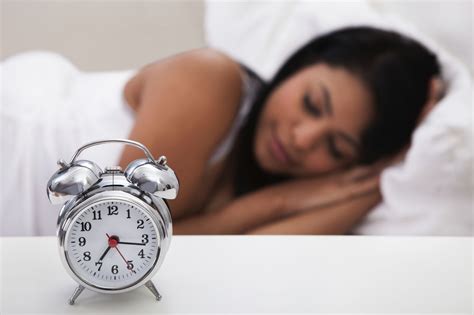How to optimize sleep for peak athletic recovery and daily mental focus?

While rigorous training and precise nutrition are cornerstones of athletic performance, the often-underestimated third pillar – sleep – is equally, if not more, critical. For athletes striving for peak recovery, improved mental sharpness, and consistent performance, understanding and optimizing sleep is a game-changer. It’s not just about getting enough hours; it’s about getting quality, restorative sleep.
Understanding the Core Impact of Sleep on Performance
Sleep is far more than just ‘rest.’ It’s an active, complex physiological process crucial for both physical and mental regeneration. During deep sleep (NREM Stage 3), your body repairs tissues, synthesizes proteins, and releases growth hormone vital for muscle growth and repair. REM sleep, on the other hand, is essential for cognitive function, memory consolidation, emotional regulation, and skill acquisition – all critical for learning new techniques or strategizing for competition.
Insufficient or poor-quality sleep leads to increased injury risk, reduced endurance, slower reaction times, impaired decision-making, and diminished mood. Optimizing sleep, therefore, directly translates into better performance on the field, in the gym, and in daily life.

Establishing Your Non-Negotiable Sleep Schedule
One of the most powerful tools for sleep optimization is consistency. Your body thrives on routine, governed by its internal biological clock, the circadian rhythm. Going to bed and waking up at roughly the same time every day, even on weekends, helps regulate this rhythm, leading to more profound and efficient sleep.
- Aim for 7-9 hours: While individual needs vary, most athletes require at least 7-9 hours of quality sleep per night. Elite athletes or those in intense training phases might need 9-10 hours.
- Listen to your body: Pay attention to signs of sleep deprivation, like needing an alarm to wake up, daytime grogginess, or reliance on caffeine.
Crafting the Ideal Sleep Environment
Your bedroom should be a sanctuary dedicated to sleep. Optimizing your sleep environment can significantly impact sleep quality.
- Darkness: Eliminate all sources of light. Use blackout curtains, an eye mask, or cover electronic lights. Darkness signals your body to produce melatonin, the sleep hormone.
- Quiet: Minimize noise distractions. Earplugs or a white noise machine can be highly effective, especially for light sleepers.
- Cool Temperature: The optimal room temperature for sleep is generally between 18-20°C (65-68°F). Your body’s core temperature naturally drops during sleep, and a cool environment facilitates this process.
- Comfort: Invest in a comfortable mattress and pillows that support proper spinal alignment. Keep your bedding clean and breathable.

Implementing Effective Pre-Sleep Rituals
Just as you warm up for a workout, you need to wind down for sleep. A consistent pre-sleep routine signals to your body that it’s time to prepare for rest.
- Avoid Blue Light: Stop using screens (phones, tablets, computers, TVs) at least 60-90 minutes before bedtime. The blue light emitted by these devices can suppress melatonin production. If unavoidable, use blue light filtering apps or glasses.
- Limit Stimulants: Cut off caffeine intake at least 6-8 hours before bed. Be mindful of hidden caffeine in pre-workouts or certain teas.
- Light Evening Meal: Avoid heavy, rich, or spicy meals close to bedtime, which can cause indigestion. Opt for a light, easily digestible snack if needed.
- Relaxation Techniques: Incorporate activities like reading a physical book, gentle stretching, meditation, deep breathing exercises, or a warm bath to calm your mind and body.

Nutrition, Hydration, and Strategic Napping
While often linked to training, nutrition and hydration also play a role in sleep quality. Moreover, strategic napping can be a powerful tool for athletic recovery and mental rejuvenation.
- Alcohol Awareness: While alcohol might initially make you feel drowsy, it disrupts sleep architecture, leading to fragmented and less restorative sleep. Avoid it close to bedtime.
- Hydration: Stay well-hydrated throughout the day, but taper off fluids an hour or two before bed to avoid waking up for bathroom breaks.
- Strategic Napping: A 20-30 minute ‘power nap’ can boost alertness and cognitive function without causing grogginess. Longer naps (60-90 minutes) can aid physical recovery, but ensure they don’t interfere with nighttime sleep, ideally taken earlier in the afternoon.

Monitor, Adapt, and Prioritize
Sleep optimization is an ongoing process. What works for one athlete may not work for another, and your needs can change based on training intensity, travel, and life stressors.
- Track Your Sleep: Utilize sleep tracking apps or wearables to monitor sleep duration, quality, and patterns. A sleep journal can also help identify correlations between your daily habits and sleep outcomes.
- Listen to Your Body: Pay attention to how you feel each day. Are you energized? Mentally sharp? Or sluggish and irritable? Use this feedback to adjust your sleep strategies.
- Prioritize Sleep: Recognize that sleep is not a luxury but a fundamental component of your training and overall well-being. Make it a non-negotiable part of your daily routine.

By consciously optimizing your sleep, you’re not just resting; you’re actively engaging in a powerful recovery and performance-enhancing strategy. Embrace these practices, and you’ll find yourself not only recovering faster and training harder but also approaching each day with heightened mental focus, resilience, and an undeniable edge in your athletic pursuits.









